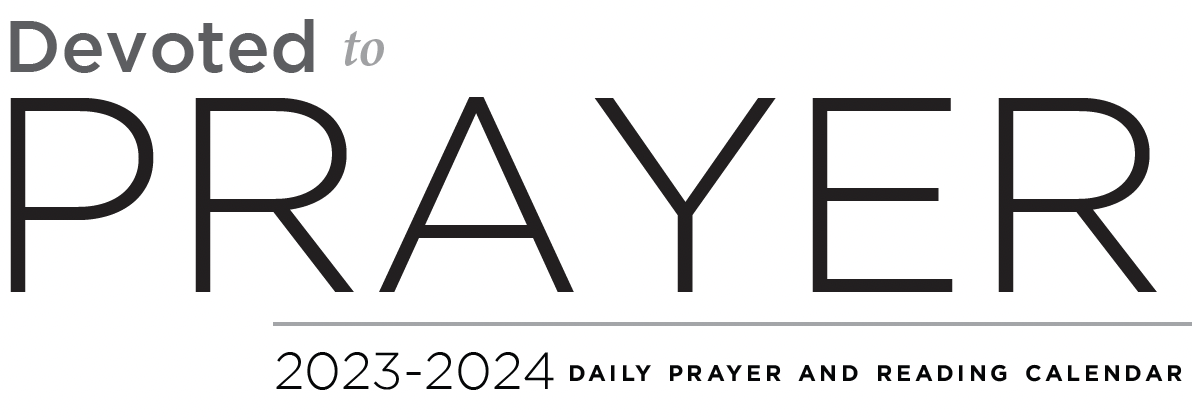
Tuesday of the First Week in Lent
Why is repentance one of the main themes of the Lenten Season? Because when Jesus appeared on the scene of human history, the need for us to repent was central to what He proclaimed: “The time is fulfilled, and the kingdom of God is at hand; repent and believe in the gospel”(Mark 1:15). Now, what often happens when we tell others and even warn them of the very real need to repent? Soren Kierkegaard answers this question by telling this parable: It happened that a fire broke out backstage in a theater. The clown came out to inform the audience. The audience thought it was just a joke and applauded. When the clown repeated his warning, they cheered and applauded even louder. So, said Kierkegaard, “I think that’s just how the world will come to an end, to the general applause from wits who believe it’s a joke.”
I am inclined to agree with Kierkegaard. Christian preachers and teachers try to warn that a Judgment Day is coming and often the listeners treat the message as foolish, even a joke. As St. Paul notes in today’s second reading, “For Jews demand signs and Greeks seek wisdom, but we preach Christ crucified, a stumbling block to Jews and folly to Gentiles, but to those who are called, both Jews and Greeks, Christ the power of God and the wisdom of God” (1 Cor. 1:22-24, ESV).
Like the clown, Jesus has a message for everyone. ln today’s reading it may be broken into the following four parts.
“The time is fulfilled.” The time, determined by God and according to His plan, has arrived for the Christ to come and live among us in the person of Jesus.
“The kingdom of God is at hand.” The reign of God on earth has begun with the appearing of Jesus on the scene of human history. Jesus ushers in this kingdom, revealing He is the Christ by the authority of His Word, performing miracles, and proclaiming the saving work He will accomplish at the cross of Good Friday and the empty tomb of Easter.
“Repent.” Repentance is a daily process by which we are convicted by the Word of God. The knowledge of our sinfulness opens our hearts and minds to the Holy Spirit’s power to work faith in us. This faith produces an outward change in how we live our lives. Hence, the Holy Spirit helps change our thoughts, words, and deeds. We change from being followers of the world, the flesh, and the devil to daily striving to be followers of Jesus.
“Believe in the gospel!” So today and every day, do what you are doing right now. Nurture your belief in Christ by reading God’s Word, reflect on that Word, and pray asking the Holy Spirit to work true repentance and faith in your life. Then go out and enjoy the blessing of living a faithful life of daily repentance!
Prayer: Lord Jesus, help us to see that Your kingdom has begun and that the work of your kingdom is going on all around us. Enable us by the power of the Holy Spirit to truly repent and believe Your Gospel. And as we await Your return to judge the living and the dead and so fulfill Your kingdom, use us according to Your will for the work of Your kingdom in this world. In the name of the Father, and of the Son, and of the Holy Spirit, Amen.
Devotion written by the Rev. Dr. William E. White
Morning Psalms
Evening Psalms

This daily prayer and Bible reading guide, Devoted to Prayer (based on Acts 2:42), was conceived and prepared by the Rev. Andrew S. Ames Fuller, director of communications for the North American Lutheran Church (NALC). After several challenging years in the midst of the COVID-19 pandemic, we have been provided with a unique opportunity to revitalize the ancient practice of daily prayer and Scripture reading in our homes. While the Reading the Word of God three-year lectionary provided a much-needed and refreshing calendar for our congregations to engage in Scripture reading, this calendar includes a missing component of daily devotion: prayer. This guide is to provide the average layperson and pastor with the simple tools for sorting through the busyness of their lives and reclaiming an act of daily discipleship with their Lord. The daily readings follow the Lutheran Book of Worship two-year daily lectionary, which reflect the church calendar closely. The commemorations are adapted from Philip H. Pfatteicher’s New Book of Festivals and Commemorations, a proposed common calendar of the saints that builds from the Lutheran Book of Worship, but includes saints from many of those churches in ecumenical conversation with the NALC. The introductory portion is adapted from Christ Church (Plano)’s Pray Daily. Our hope is that this calendar and guide will provide new life for congregations learning and re-learning to pray in the midst of a difficult and changing world.
